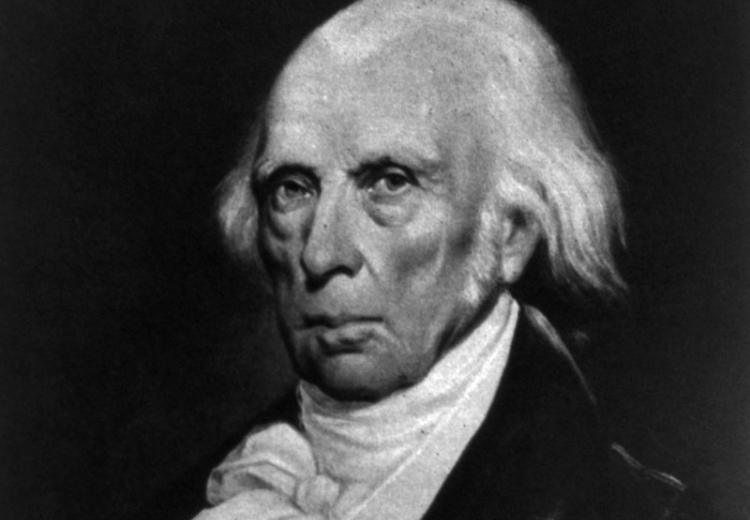Lesson 1: President Madison's 1812 War Message: A Brief Overview

James Madison.
According to the essay James Madison, 'Creating the Balance' on the EDSITEment resource The American President, "Madison's presidency was dominated by a crisis with Great Britain, which for years had been grossly violating American shipping rights." This crisis over U.S. shipping rights actually began while George Washington was president and grew during Thomas Jefferson's term in office (1800-1808), when Madison served as Secretary of State. Between 1805-07, a large number of American ships were seized and impressments of American sailors into service on British ships increased, leading Congress to pass an extreme measure, the Embargo Act of 1807. The act restricted trade with foreign nations. A state of war that began in 1803 and would continue until after Napoleon's abdication in 1814 resulted in a loss of commerce that devastated the American economy while doing little to change the policies of France and Britain.
Abuses to American commerce on the part of Britain and France continued. But in 1810 Napoleon's announcement that France would no longer seize American ships convinced President Madison to allow trade with France. The announcement had conditions attached, and France continued to interfere with American shipping. In the end, however, the U.S. declared war only on Great Britain.
The decision to go to war is one of the most serious an American president faces. On June 1, 1812, President Madison sent a letter—later dubbed his war message—to both houses of Congress. In it, he listed a series of transgressions Great Britain had committed against the U.S. He also explained his decision not to recommend war with France at that time. EDSITEment resources offer primary documents that illuminate key points in President Madison's War Message. Help your students understand the reasons the president gave for going to war, while heightening their appreciation of the value of archival sources.
Guiding Questions
How did President Madison build a case that Congress should consider declaring war with Great Britain?
Was the U.S. justified in going to war with Great Britain in 1812?
Learning Objectives
Analyze President Madison's argument and evaluate the evidence presented to Congress regarding war with Great Britain.
Determine the perspectives and documents needed to answer questions that remain regarding Madison's case for war.
